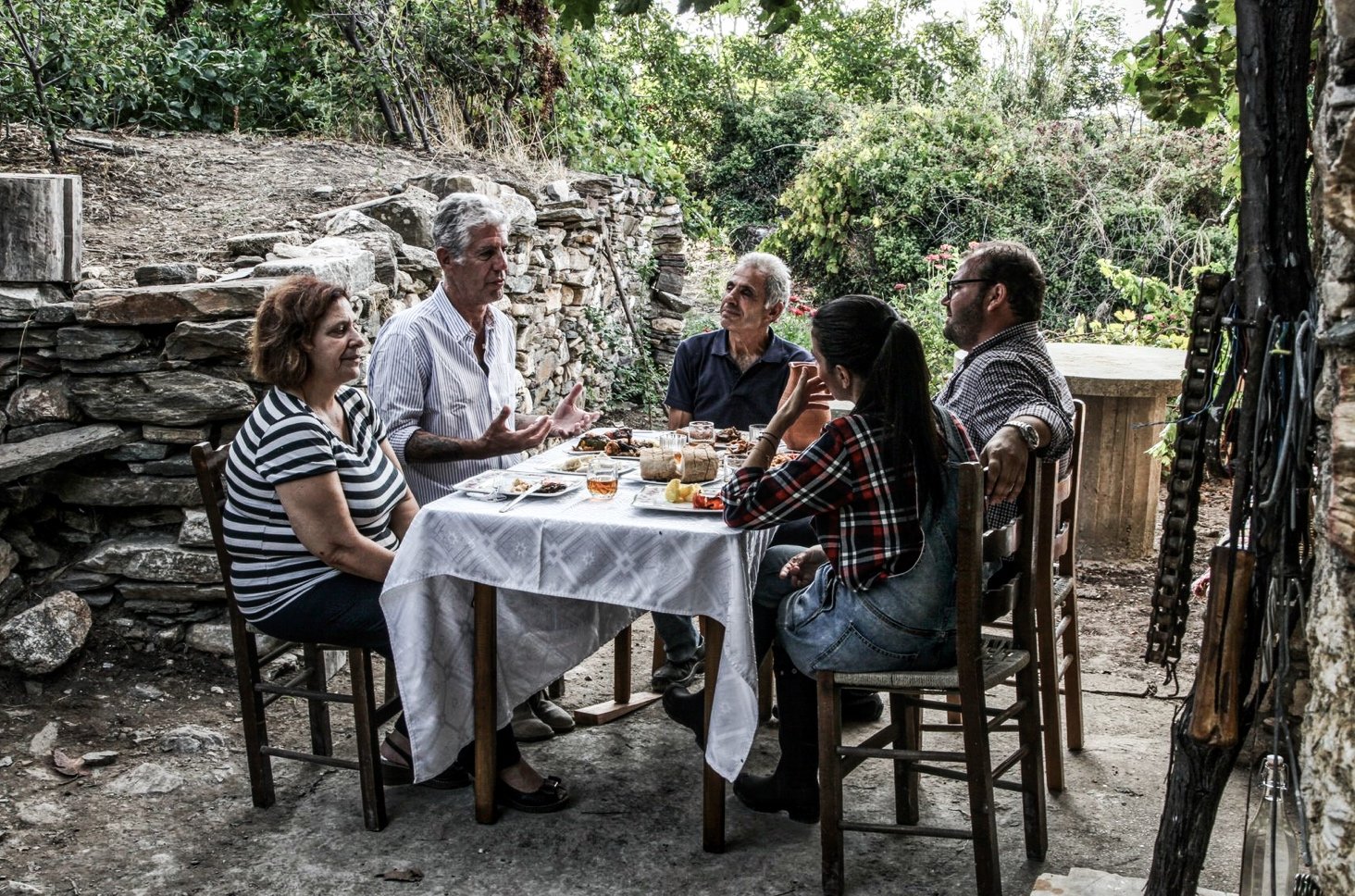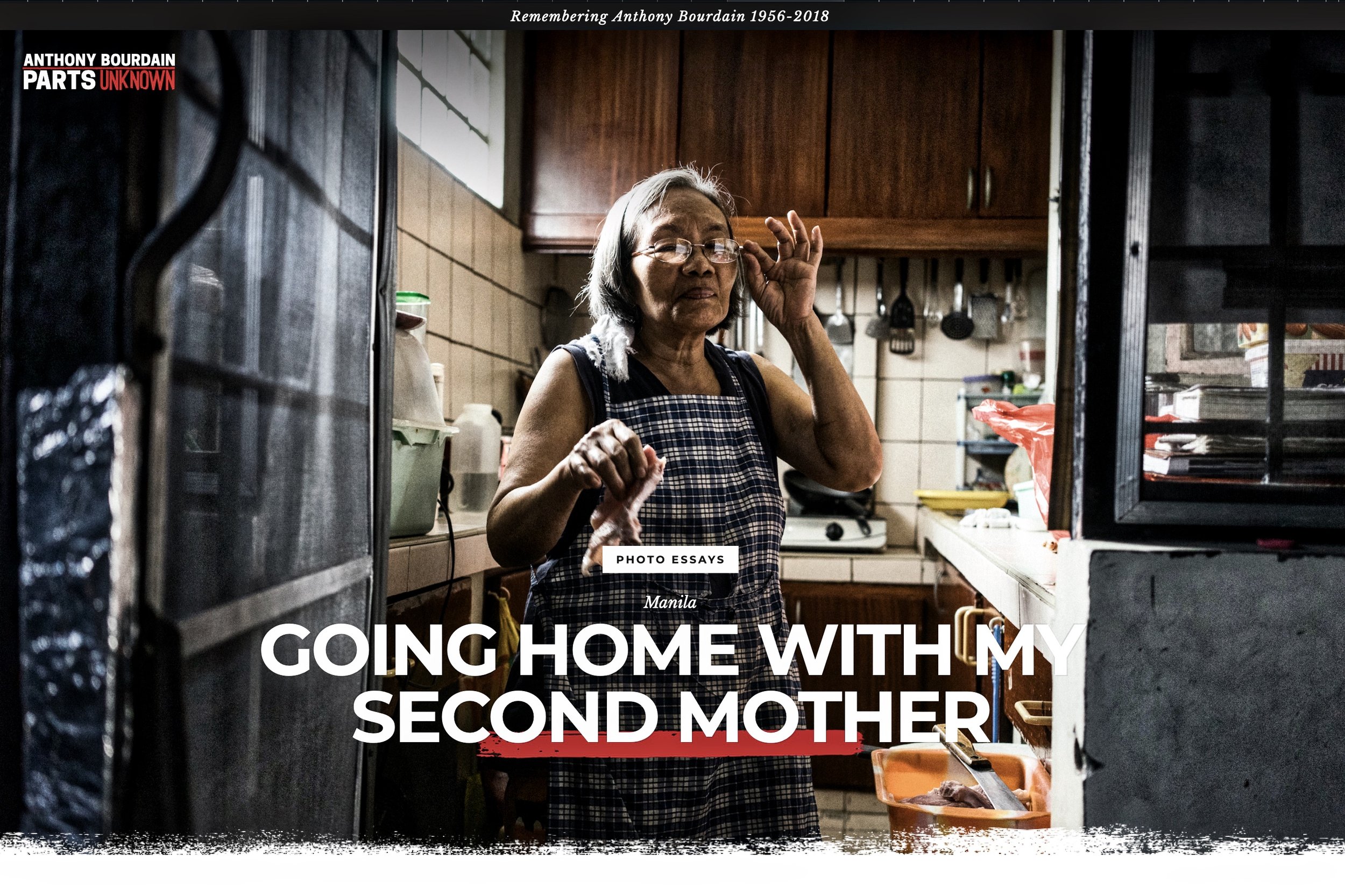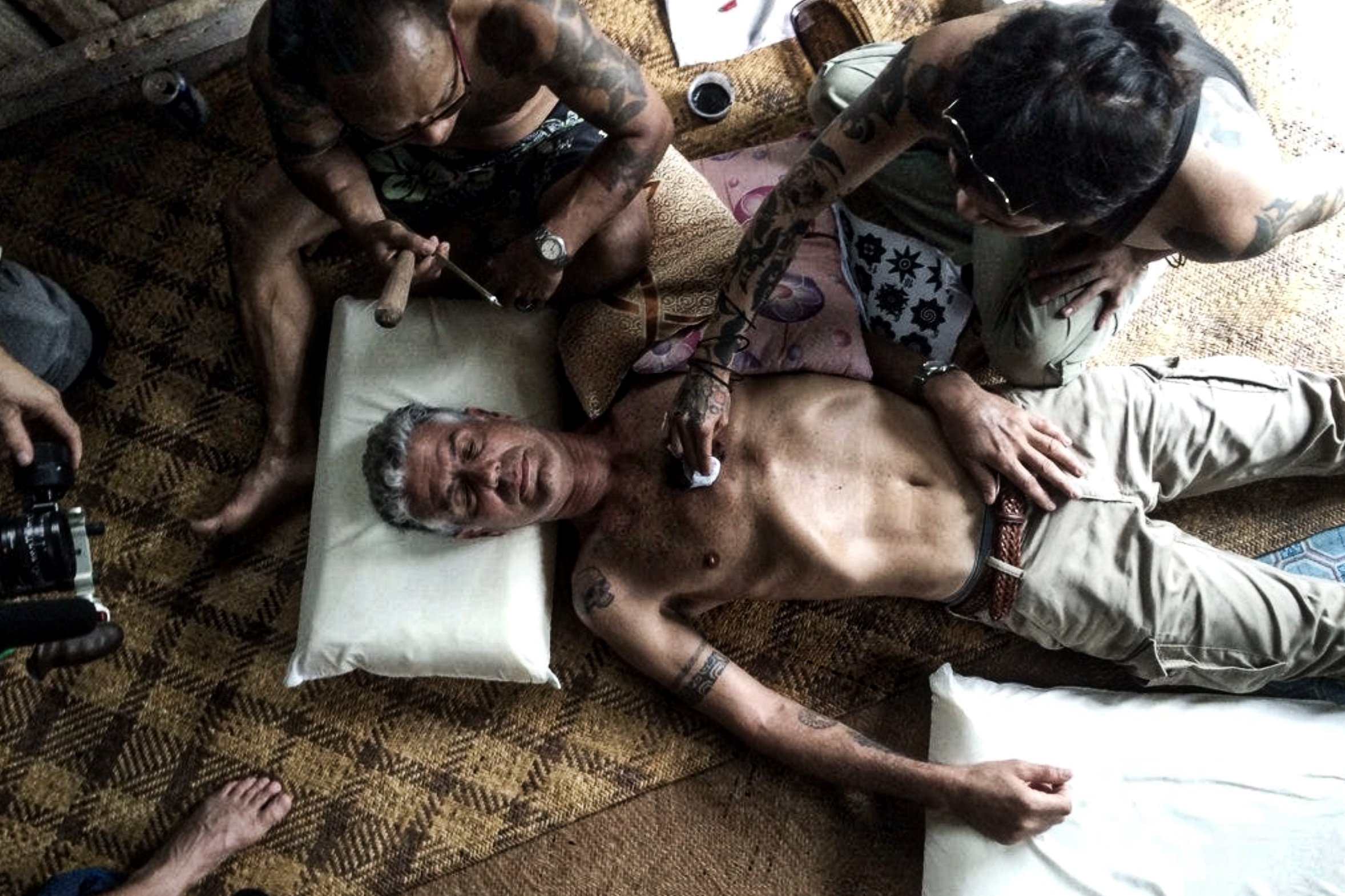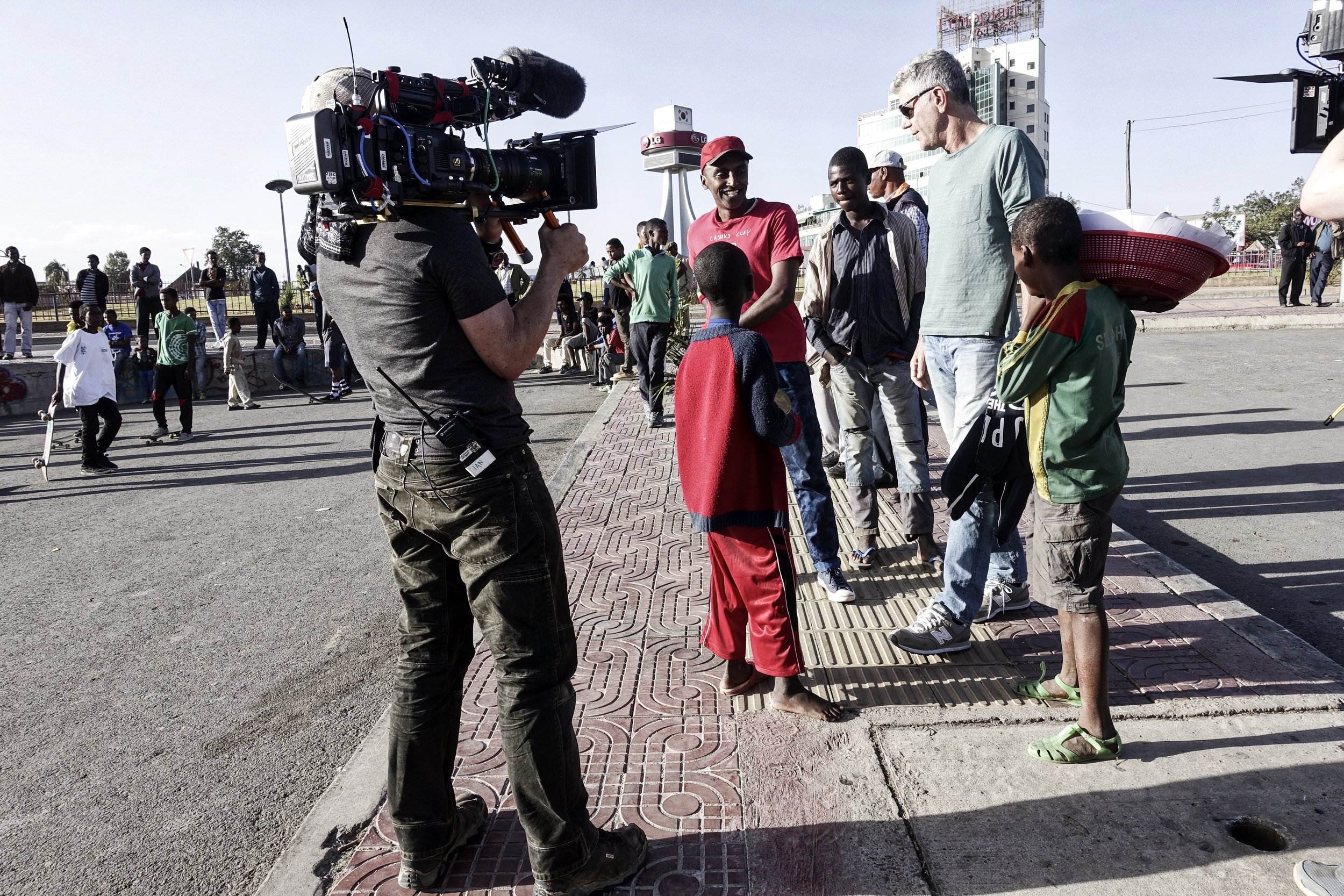And now for something completely different: an escape from the news headlines. “Pretend that everywhere is just like here: beautiful, sleepy, delicious food. Everything is just fine.” This was Tony Bourdain, getting away from it all in the summer of 2016.
It's a restive world right now. Lebanon. Gaza. Ukraine. The climate crisis. Growing signs of financial turmoil in the markets. An endless litany of horror stories on the nightly news.
Anyone looking to get away from it all — as Tony Bourdain did in October 2015, nine years ago now, during a swing through Greece’s Cyclades islands for CNN’s Parts Unknown — could do worse than to revisit, or perhaps visit for the first time, Bourdain’s Parts Unknown episode set in the Greek islands.
Bourdain gave the familiar tourist hotspots — Mykonos, Santorini, — a pass in favour of the island of NaxosThe Greek Islands, settle on the Mediterranean isle of Naxos for several weeks, far away from news headlines of a global market crash, street riots in Athens, refugees fleeing a widening war in the Middle East and the ever-present threat, now a clear and present danger worldwide, of the climate crisis.
This is actually a perfect time to revisit the Parts Unknown episode The Greek Islands, if only because the more things change— well, you know the rest.
Bourdain was coming off a year of travelling through hardcore conflict zones, regions beset by civil unrest and roiled by poverty, growing inequality and political turmoil. Through his lifetime affinity for Greek mythology and a desire to kick off a new season of Parts Unknown by taking a break from CNN’s usual fare of fire and fury, Bourdain, tailed by veteran producer/director Tom Vitale and a crew that included Bourdain’s longtime cameraman Zach Zamboni among others, started out with a simple premise, as he put it in his Field Notes at the time for CNN, to “go to a really nice, laid-back Greek island — one with an actual local culture, businesses and income streams outside of tourism — and slide gently into another year of making television whilst maintaining my suntan from summer vacation.”
Preferably an island without a sea of other visitors. Leave Crete to the cretins, as he might have said — but only in a moment of weakness.
And so, lo and behold, this. The Greek Islands. Praise the gods of Ancient Greece. Mt. Olympus and their human enablers: Apollo, Aphrodite, Poseidon, Athena, Dionysus, Hera, Demeter and the gang, ably aided and abetted by their human enablers, heroes all (well, nearly all): Achilles, Theseus, Odysseus, Heracles, Aeneas, Orpheus, Helen of Troy (actually, she was from Sparta, but why quibble over a mere detail).
Think of it: an idyllic two weeks or so of languishing in the Mediterranean, hoping and dreaming of a better world, surrounded by good food and good people. Bourdain’s idea was to resurrect a sense of not just what the Mediterranean was during Homer’s time, not the cartoon character but the worthy wordsmith behind those classic epic poems of Ancient Greece, Iliad and The Odyssey. Those heady times could return, Bourdain insisted, after several glasses of Mylonas “Naked Truth,” a wine easy on the nose —those in the know say) “evolved and complex with quince, cheese and a certain nuttiness,” while on the mouth, “full and round, warm and nutty — the finish is long!” If only those-in-charge had the wisdom and foresight — yes, that’s a touch of Bourdainesque sarcasm in play there, clever of you to catch it — to nurture and encourage the pursuit of pleasure, be it philosophical or physical, public or ion private, far away from the madding crowds and a world beset with trials and tribulations and, in the Eastern Mediterranean and much of the Middle East, governed by religious fanatics. Enough of these Netanyahus and Yahya Sinwars — bring back Pericles, Leonides and Agamemnon (during his better days; his worse days, not so much).
Of course, reading Greek poetry in peaceful, contemplative solitude wouldn’t be Bourdain without his ready wit and caustic observations of the human condition. And The Greek Islands, while bucolic and pleasantly restoring, has all that and more.
Naxos, for one.
Naxos, the largest of the Cyclades and the centre of ancient Cycladic culture is not a tourist island. It’s best known for its being the source of emery, a rock rich in corundum, and for being the place where the young Zeus of Greek mythology was raised in a cave on an island the poet Homer lionized as Dia, the sacred island “of the Goddess.” There is no nightlife. Not even Coldplay. The party scene is virtually non-existent, or at least it was at the time Bourdain visited. This was about as close to the classic Greek islands as anyone was likely to get in the early 21st century.
Vitale and his camera team wanted to keep the camera constantly moving, ever-so-slowly even, to create a kind of dreamy drift through the chill life in the Greek islands. Naxos is relatively secluded, despite its size, and steeped in a deep small-island tradition of locally sourced food and good wine, a place where close friends and family are what matters, not catering to cruise ships and the great unwashed who board them.
“We shot an offshore dive on a sunken shipwreck, drank raki with the local governor and his in-laws, and sampled fresh fish right off the boat,” Jerry Risius, the episode’s director-of-photography, wrote in his blog at the time, shortly before Greek Islands aired on CNN.
“We had an amazing meal with the politically outspoken group the Stray Bitches, and travelled to the mountainous village of Apeiranthos, where we shot Tony enjoying a traditional celebration in the town square.
“Sometimes, we luck out with local crews … and in Greece, we lucked out. We had the most amazing crew. They helped keep our cameras in constant movement. It was solitary Tony magic with a location-appropriate tempo, and it created a Greek epic.”
Parts Unknown was all about showing us the world through Bourdain’s eyes, in his own words, and on that front, he didn’t disappoint. Bourdain wouldn’t be Bourdain without, well, Bourdain.
On Greece’s financial crisis in 2015, about to happen again? “It’s bumming me out. It’s harshing my total buzz.”
Sorry, Homer, but Odysseus, aka Ulysses, was somewhat of a cad. “I can tell you this: Ulysses was kind of dick. I mean, he left his wife alone for how long?”
On getting away from it all: “The pressures of the outside world I don’t want to think about. I’m on a Greek Island here. It's a beautiful day. I’m planning on passing out on the beach, snorkelling, you know, maybe doing some watercolours, doing a little cooking, napping, eating, more napping, contemplating the mysteries of the universe, or napping, either one or eating cheese — all of those are honourable options. I mean, that’s a vacation to me: staying put and doing nothing.”
The party scene in small-town Greece, in Apeiranthos: “The sort of place where you can still walk into a town square and find yourself caught up in a celebration. This one celebrates Greco-American actor John Stamos’ return to ‘Full House.’”
Bottom line: In the end, Bourdain sought a little peace and quiet, and peace and quiet is pretty much what he found. “The narrow slices of life depicted in this episode,” he wrote in his Field Notes at the time, “are me learning right there along with you.”
Can’t go wrong there.
Supplementary reading:
https://explorepartsunknown.com/greek-islands/greece-episode-facts/
https://explorepartsunknown.com/greek-islands/bourdains-field-notes-the-greek-islands/










